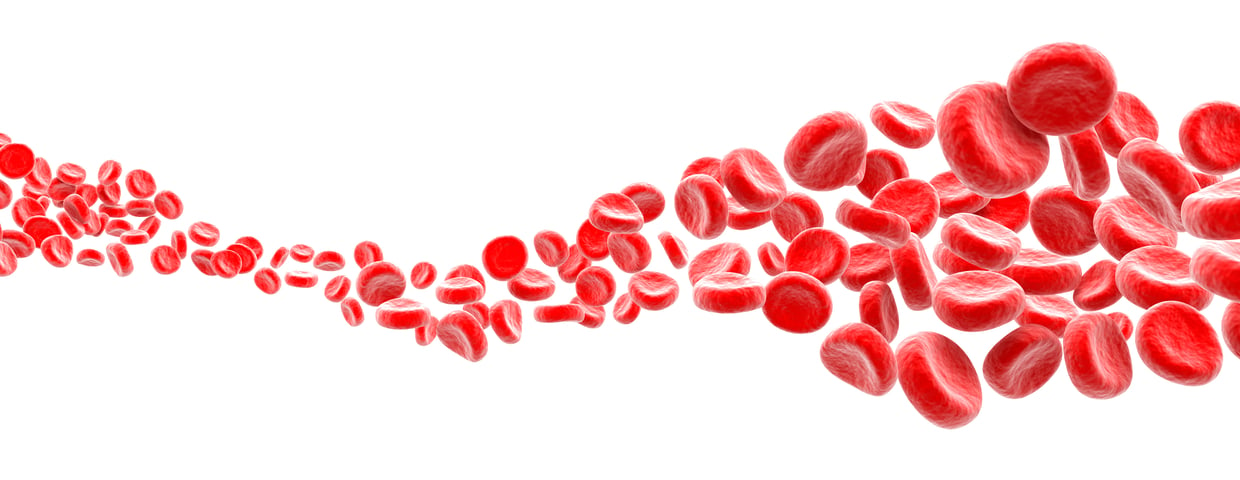Aging is a complex process influenced by a combination of genetic, epigenetic, and environmental factors. Genetic components account for almost 30% of the aging while epigenetic (changes that alter the physical structure of DNA) and environmental modifications are considered to be the major contributors.
For the first time, a clinical study in California has suggested that it might be possible to reverse the body’s epigenetic clock. As opposed to a chronological clock (actual amount of time a person has been alive), this type of clock measures a person’s biological age.
For one year, healthy volunteers took three common medications:
1) Omnitrope: a brand of growth hormone.
2) Metformin: a diabetes medication.
3) and DHEA, a hormone that's naturally produced by the adrenal glands.
The results of the study showed that on average the participants shed 2.5 years of their biological ages. This test was done by measuring and analyzing certain marks on a person’s genomes. Another interesting result was that the participants’ immune systems showed signs of rejuvenation.
Geneticist Steve Horvath at the University of California, Los Angeles, who conducted the epigenetic analysis only expected to see a slowing down of the clock, but not a reversal.
DNA marks of life
The epigenetic clock relies on the body’s epigenome, which are chemical modifications, such as methyl groups, that tag our DNA and regulate gene expression. The pattern of these tags changes during the course of life which can affect a person’s biological age. It can show whether we lag behind or exceed our chronological age.
Scientists can construct epigenetic clocks by selecting sets of DNA-methylation sites across the genome. Methylation of DNA is a common epigenetic signaling tool that cells use to modify the function of genes and affect gene expression.
The latest trial was designed to test whether growth hormone could be used safely in humans to restore tissue in the thymus gland. The gland, which is in the chest between the lungs and the breastbone, is crucial for efficient immune function. White blood cells are produced in bone marrow and then mature inside the thymus, where they become specialized T cells that help the body to fight infections and cancers. As we age the gland starts to shrink and after puberty it becomes increasingly clogged with fat.
Animal and human studies have already shown that growth hormone stimulates regeneration of the thymus. Growth hormone use in some cases can lead to diabetes, so the trial included Metformin, a widely used diabetic drug along with dehydroepiandrosterone (DHEA), which is believed to have positive effects on insulin resistance and glucose metabolism.
TRIIM
The study was called TRIIM, the Thymus Regeneration, Immunorestoration and Insulin Mitigation trial. It tested 9 white men between 51 and 65 years of age. It was led by immunologist Gregory Fahy, the chief scientific officer and co-founder of Intervene Immune in Los Angeles. It was approved by the US Food and Drug Administration in May 2015 and started a few months later in Palo Alto California at Stanford Medical Center.
Fahy’s fascination with the thymus goes back to 1986, when he read a study in which scientists transplanted growth-hormone-secreting cells into rats, apparently rejuvenating their immune systems. He was surprised that no one seemed to have followed up on the result with a clinical trial. A decade later, at age 46, he treated himself for a month with growth hormone and DHEA and found some regeneration of his own thymus.
In the TRIIM trial, the scientists took blood samples from participants during the treatment period. Tests showed that blood-cell count was rejuvenated in each of the participants. The researchers also used magnetic resonance imaging (MRI) to determine the composition of the thymus at the start and end of the study. They found that in seven participants, accumulated fat had been replaced with regenerated thymus tissue.
Rewinding the clock
The object of the study was to initially see if the thymus tissue regenerated. It was after the study had concluded when Gregory Fahy wanted to measure the effect of the 3 drugs on the participants’ epigenetic clocks. Fahy then approached Horvath to conduct an analysis.
Geneticist Steve Horvath used four different epigenetic clocks to assess each patient’s biological age, and he found significant reversal for each trial participant in all of the tests. The biological effect of the treatment was a success. What was more promising was that these changes persisted for six months after stopping the trial.
Reviving the human lifespan debate
Researchers are already testing metformin for its potential to protect against common age-related diseases, such as cancer and heart disease. The three drugs in the cocktail might also contribute separately to the effect on biological aging through other unique mechanisms. Intervene Immune is planning a larger study that will include people of different age groups and ethnicities, and women.
Regenerating the thymus could be useful in people who have underactive immune systems, including older people. Pneumonia and other infectious diseases are a major cause of death in people older than 70. These findings show an expansion of immune cells in the blood. This has huge implications not just for infectious disease but also for cancer and aging in general.
Transformyou offer numerous age management and immune system optimization therapies. Let us help you age the right way!
Read next in Anti-Aging Medicine

The Secret to Lasting Youth with Proven Anti-Aging Tips
By Dr. Robb Bird

Senolytics: Dasatinib & Quercetin
By Dr. Robb Bird

How Ketones Support Brain Health and Prevent Neurodegeneration
By Dr. Robb Bird
Medically reviewed by Dr. Robb Bird, NMD FAARM
Medical Director, Transformyou
